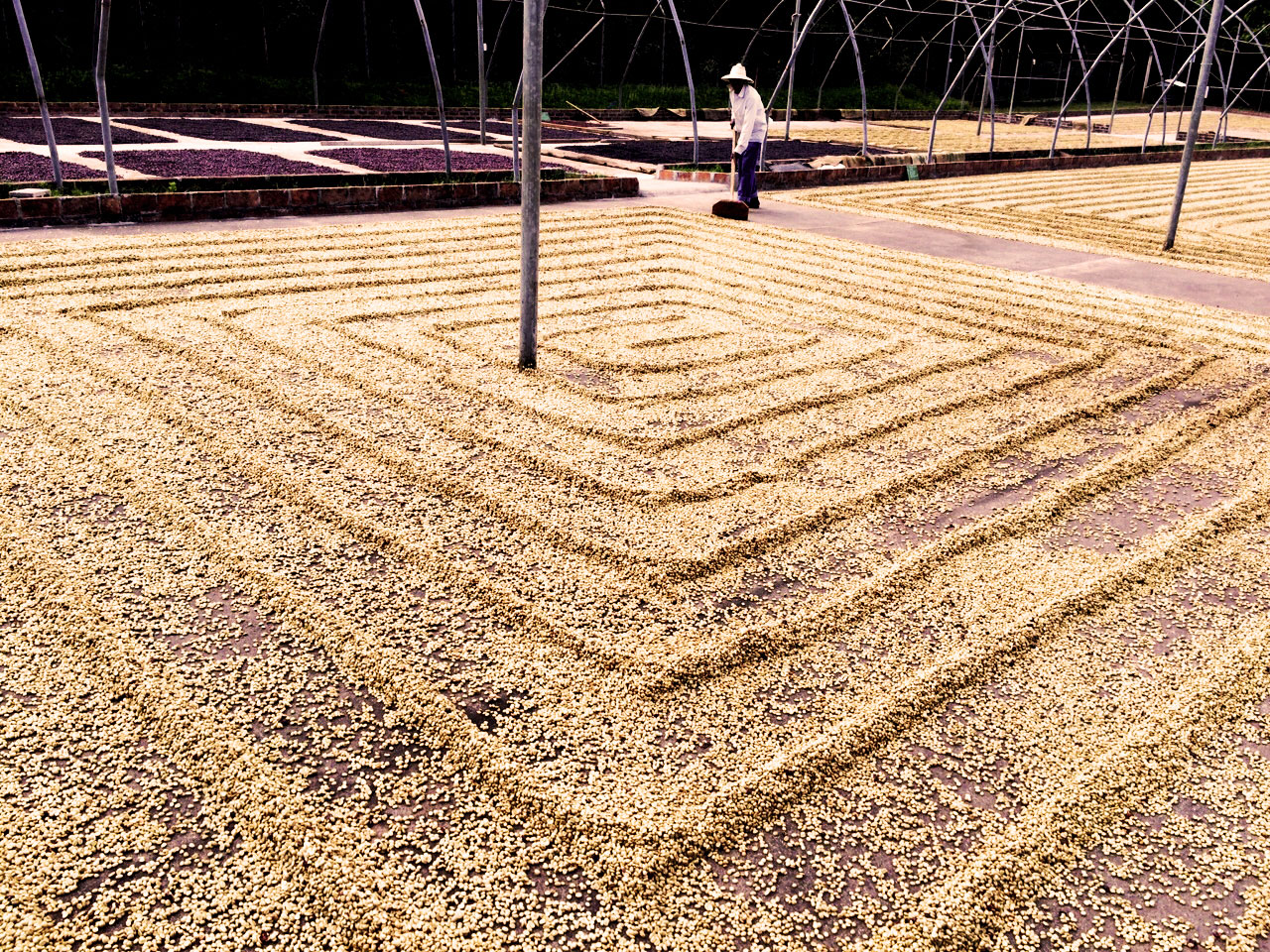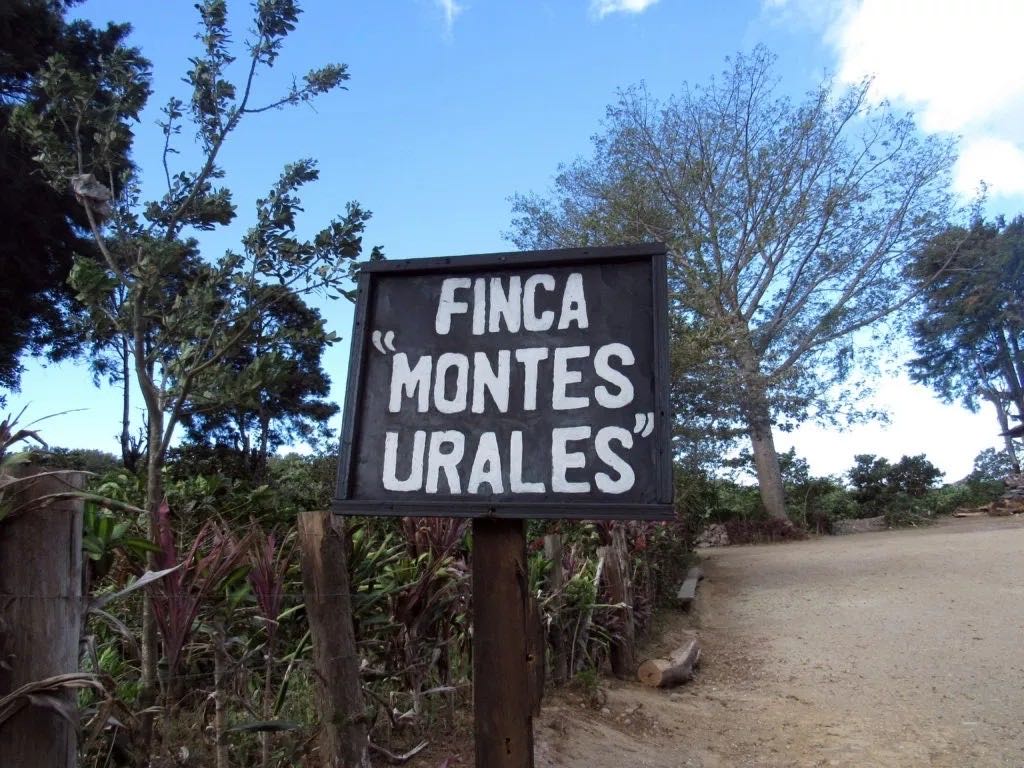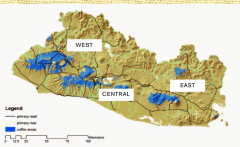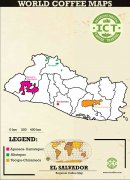Bourbon characteristics of the History of Coffee cultivation in El Salvador, the birthplace of Pacas Pacamara Coffee beans
Position in the world as a coffee exporter (19gam20):
On the 19th
Annual export of gunny bags (60kg) (19pe20):
About 546000
Percentage of the world coffee market:
Less than 1%
Export of other major agricultural products:
Sugar, corn, rice, beans
Typical varieties of production:
Bourbon, Pacas, Pacamara, Kaddura and Katuai
Major coffee producing areas:
Apaneca-Ilamatepec, Central Belt, Chichontepec, Cacahuatique and Tecapa-Chichontepec Mountains
Typical harvest time:
October-March
Generally available:
Since July
El Salvador is the smallest of the Central American countries. It produces quality coffee to a consistently high standard. Mercanta regularly buys selected single varieties, such as orange / pink bourbon, red bourbon and Pacamara, and has established strong long-term relationships with many producers and factories in this small coffee powerhouse.
The history of Salvadoran coffee is inseparable from the development of the country itself. Coffee was launched in the late 1880s and quickly replaced indigo as the country's main export. By the 1920s, coffee accounted for 90% of all exports in El Salvador.
This mass production is owned by the elite of small lands that own large tracts of land (by 1895, General Thomas Ragalado alone owned more than 6000 hectares of land! ) and is closely related to the governance of El Salvador, which has had a negative and positive impact on the development of the country. On the one hand, the leaders of these coffee economies (and countries) invest heavily in internal infrastructure, such as roads, to benefit the coffee industry; on the other hand, those who have no land (which is the majority of the population of El Salvador) are largely ignored in the wealth created.

By the 1970s, El Salvador was the fourth largest coffee producer in the world; this was remarkable given the size of the country. However, the over-reliance on coffee for political and economic growth led to a cyclical struggle that eventually led to a civil war that lasted from 1979 to 1992. This period and the consequences of the war also witnessed significant land reform and redistribution in the country, which eventually led to the collapse of many of the country's large traditional estates. Today, about 95% of the country's coffee producers grow coffee on less than 20 hectares of land, and no one can own more than 245 hectares of land.
What is unusual in Central America is that about 60% of the coffee produced in El Salvador is bourbon, which is characterized by unusually clean, bright and sweet, with a strong citrus flavor. However, an unusually high proportion of this famous coffee variety in the country is currently threatened by coffee leaf rust, which has a significant impact on the country's production, resulting in a 20 per cent drop in export earnings between 2011 and 2013.
In front of the street, the coffee of El Salvador's Mount Ura Manor is grown in bourbon, and the honey treatment adds to the sweetness of this coffee. On the palate, there are plum and grapefruit with a slight citrus acidity, and the finish of Xuanmi tea with nut chocolate flavor is full of texture.

It is worth noting that El Salvador is also the birthplace of Pacas and Pacamara varieties, the latter of which is a hybrid of Pacas and Maragogype. The famous Pacamaras from El Salvador usually produces a larger-bodied wine with tropical fruit, syrup, citrus brightness and a distinctive yellow grapefruit finish.
Ninety-five per cent of the coffee produced in El Salvador is grown in shade, and the enthusiasm and expertise of farmers, combined with skilled picking and grinding labour, have greatly contributed to the sustained high quality of the country's production. In addition, today, coffee producers are supported by Consejo Salvadore ñ o Del Caf é, which has done a great deal of work in supporting and promoting Salvadoran coffee at home and abroad, as well as in providing support to domestic producers. Through their work, they tirelessly stimulate export markets for growers and maintain and improve the quality of coffee produced in El Salvador.
Important Notice :
前街咖啡 FrontStreet Coffee has moved to new addredd:
FrontStreet Coffee Address: 315,Donghua East Road,GuangZhou
Tel:020 38364473
- Prev

Characteristics of Arabica coffee beans in El Salvador the story and flavor of Pacamara coffee beans
The coffee produced in El Salvador belongs to the Arabica coffee category. The variants of coffee are Bourbon, Pacas, Tekisic, Pacamara and Maragogype. The main type of coffee plant found in most plantations is bourbon, followed by Pacas. Pacamara: physically, it is a big fruit and seed. Good body, aroma and acidity and unique style
- Next

El Salvador coffee bean producing area Santa Ana, the volcanic country of El Salvador coffee cultivation.
Coffee is grown more or less throughout El Salvador (well, after all, it's not that big), but there are seven main areas where coffee is grown, all of which are considered different from each other, mainly in terms of altitude and flavor characteristics. According to PROCAF (the National Coffee Institute), it is arranged as follows: Apaneca-Ilamatepec Mountains: located in the west, from 500 elevations
Related
- Detailed explanation of Jadeite planting Land in Panamanian Jadeite Manor introduction to the grading system of Jadeite competitive bidding, Red bid, Green bid and Rose Summer
- Story of Coffee planting in Brenka region of Costa Rica Stonehenge Manor anaerobic heavy honey treatment of flavor mouth
- What's on the barrel of Blue Mountain Coffee beans?
- Can American coffee also pull flowers? How to use hot American style to pull out a good-looking pattern?
- Can you make a cold extract with coffee beans? What is the right proportion for cold-extracted coffee formula?
- Indonesian PWN Gold Mandrine Coffee Origin Features Flavor How to Chong? Mandolin coffee is American.
- A brief introduction to the flavor characteristics of Brazilian yellow bourbon coffee beans
- What is the effect of different water quality on the flavor of cold-extracted coffee? What kind of water is best for brewing coffee?
- Why do you think of Rose Summer whenever you mention Panamanian coffee?
- Introduction to the characteristics of authentic blue mountain coffee bean producing areas? What is the CIB Coffee Authority in Jamaica?

